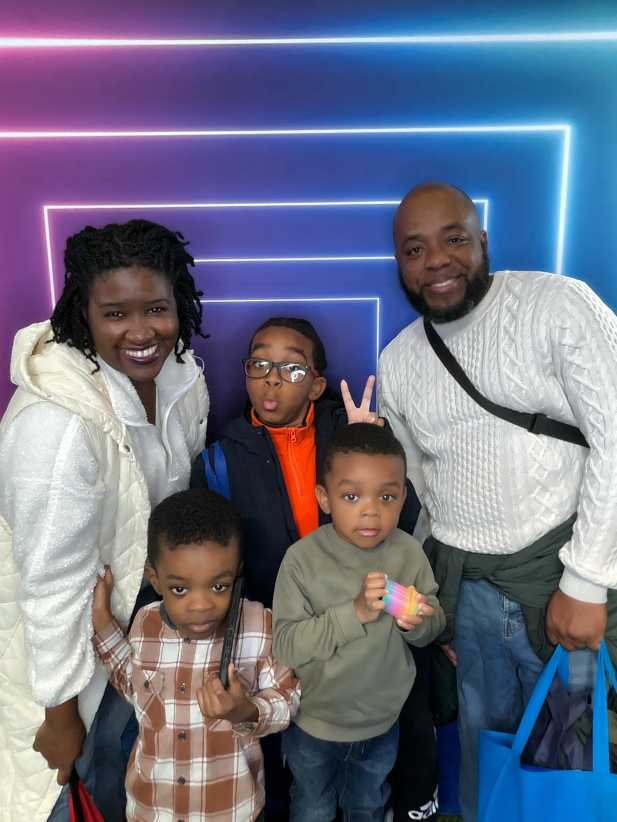Having discovered Dr. Maria Montessori’s internationally proven educational philosophy — a theory she began developing at the end of the 19th century in Italy — late in my career, I find that I cannot learn enough, for my sake, for the students in my school, and for my granddaughter. So much of what takes place in a Montessori environment today is predicated on the guiding principles that Montessori developed after many years of observing children.
Montessori is an educational philosophy that supports a student’s innate curiosity and freedom to question, encouraging adaptability and independence. The need for our children to develop critical thinking and problem-solving skills has become even more important as they face the challenges to come in our rapidly changing world.
Whether you read Dr. Jane Healy’s book, “Your Child’s Growing Mind”; the New York Times Feb. 17, 2012 article, “Building Self-Control the American Way”; or Daniel Pink’s book, “Drive: The Surprising Truth About What Motivates Us,” you will come across present-day principles and phrases that relate directly to Montessori’s work and methods. The resurgence of Montessori education here in the U.S. — that began in the early 1960s — has grown to more than 4,000 private and public schools today.
In understanding Montessori education, which is now the most utilized pedagogy on the globe, with more than 22,000 schools in 110 countries, it might be helpful to review a few of the most prominent words that describe the basic tenets of her work and their relevancy to the needs of education today.
• Teacher as facilitator – Montessori believed that teachers should be a guide-on-the-side rather than a sage-on-the-stage. A top-down learning environment is non-productive for the student. Education is most successful when the student is an independent learner. Also, Montessori teachers must complete extensive training to become credentialed Montessori teachers.
“The child is truly a miraculous being, and this should be felt deeply by the educator,” said Montessori.
• Respect for the student – Along the same lines as teacher as facilitator, in a Montessori environment, there is a deep respect for the student. Students flourish in a setting that is supportive and respectful of their individuality, abilities, and potential.
• Intrinsically motivated – Probably one of Montessori’s most meaningful tenets is helping students to work for their own goals, satisfaction, and interest, and not for external rewards. It is widely recognized that individuals are more highly motivated when they have a vested interest in their pursuits and goals.
• Prepared environment – A Montessori classroom is designed with thoughtful structure that facilitates students making choices and learning at their own pace. It is an environment that develops independent problem-solving skills by allowing students time to explore, discover, concentrate, research, and learn. The teacher closely monitors the progress of each student, helping her make good choices that support learning and exploration of all subjects within an academic curriculum.
• Mixed-age classes – Montessori classrooms have 3-, 4-, and 5-year old students in one classroom, just as first-, second-, and third-grade students or fourth-, fifth-, and sixth-grade students are in one classroom. This promotes peer learning; students learn from and teach each other, developing collaboration and leadership skills, compassion, and mastery of the material.
• Three-year cycle – Students remain with the same teacher for three years, allowing teachers to gain an intimate knowledge of each student’s individual learning style and potential. And it provides consistency in a student’s academic life. A spiraling curriculum throughout the three-year cycle develops a deeper understanding of academic subjects.
• Method and materials that are timeless – Many of the materials Montessori developed 100 years ago are used in classrooms today. For example, the sequencing materials students use are highly applicable to the strict syntax necessary for computer programming or building software applications. Also, many of the self-correcting Montessori materials enable students to be successful without adult intervention, encouraging a student’s independence and self-confidence.
• Practical life skills – Students engage in tasks that relate directly to everyday practical skills. Caring for yourself and your environment, organizing, and using household materials, are employed in the classroom to help students build critical-thinking, decision-making skills, and fine-motor coordination skills.
• Grace and courtesy – Being thoughtful of the needs of others and engaging with others in a respectful manner are important characteristics of a Montessori education. These are the building blocks for the peace curriculum that is ever-present in a Montessori school. Compassion is a characteristic held in high regard within the Montessori curriculum.
• Life-long learner – Curiosity and a life-long intellectual pursuit of knowledge is a means for life. Learning is not simply to complete an assignment or achieve a satisfactory test score.
• Critical thinker – Always using exploration and experience, students are encouraged to make informed decisions. Students learn to gather information, make comparisons, and apply what works to each problem or situation, with a focus on understanding the process of discovery and developing independent, problem-solving skills.
• Confident learner with a strong sense of self – Montessori students learn to take risks in their academic work and think creatively without a fear of failure. When they do fail, they see it as a learning experience and know how to independently recover and get back on track.
• • •
All of the above Montessori concepts are not only important in the early years, but they also provide the foundation for adolescence and adulthood. During the critical adolescent years, these methods become essential to give students the independence to manage freedom with responsibility. Repeatedly, Montessori education touches the lives of so many people in a way that helps them to be confident, thoughtful citizens, always working to build a better environment for themselves and others.
Dane L. Peters is head of Brooklyn Heights Montessori School in Brooklyn. You can reach him at dpeters@bhmsny.org. Visit his blog at www.danesedblog.blogspot.com.










